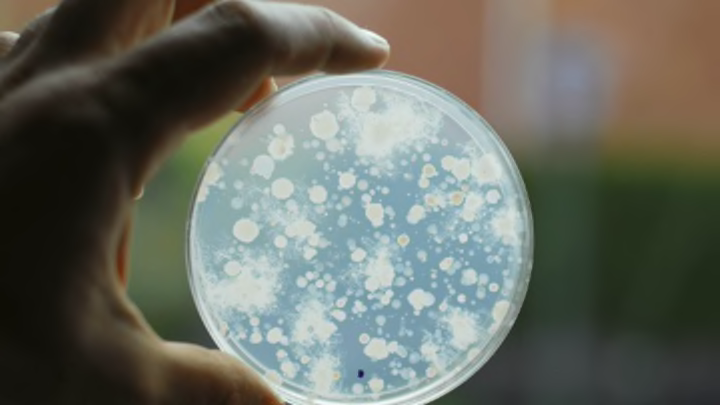The Microbiome Could Be the New Fingerprint

The unique culture of bacteria living inside you may one day identify you as easily as a fingerprint does. The human microbiome—meaning the genetic material of all the organisms that call our bodies home, including bacteria, fungi, and viruses—is relatively unique across populations, and might be capable of identifying individuals within a population.
In a new study published in the journal PNAS, microbiologists and biostatisticians developed an algorithm to match the genetic coding found in microbiome samples collected as part of the Human Microbiome Project. They found strong variations between the types of organisms that live inside different individuals, and those organisms stayed in the body for a long time. Up to a year after the first sample, 80 percent of individuals from a group of 242 people could still be traced back to their microbial features.
An illustration of how microbial features could distinguish an individual. Image Credit: Franzosa et al, PNAS
It seems that poop is particularly revealing of an individual's unique microbiome. Using genetic codes derived from stool samples (representing organisms in the gut), the researchers were able to uniquely match 86 percent of the microbiome samples to their hosts after a period of 30 to 300 days. About a third of the individuals surveyed could be later identified using samples taken from the elsewhere on body. The results tended to match either the owner of the sample or no one at all, meaning there were few false positives in the test.
This brings up important questions about privacy protection in microbiome studies, since microbial samples from participants in such studies were thought to be biologically anonymous. If people can be linked back to their microbiome data, studies of the microbiome and associated health outcomes or particular environments—an especially popular area of scientific inquiry right now—need to be designed to make participants' data more anonymous. You're probably not handing it out to just anybody, but still: that stool sample could be as unique to you as any other genetic material, so be careful who you give it to.